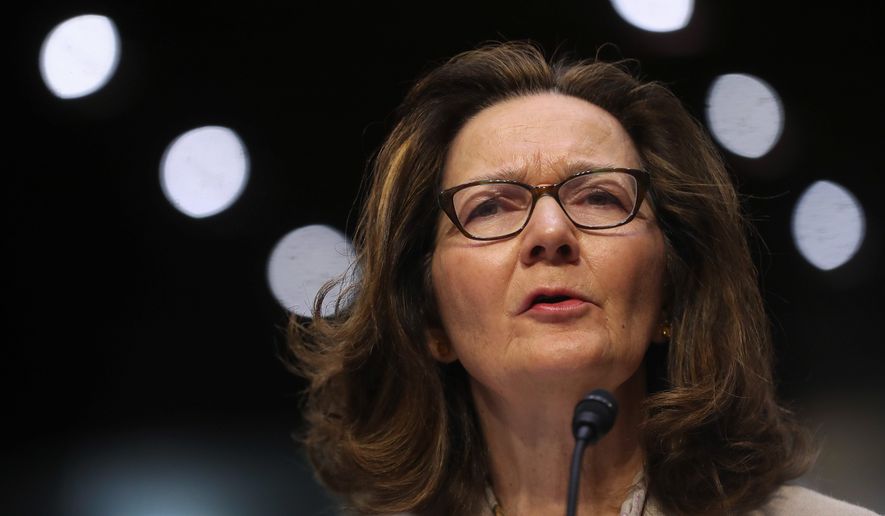Gina Haspel, President Trump’s nominee to lead the CIA, picked up a key backer Tuesday when Virginia Sen. Mark Warner, the ranking Democrat on the Senate Select Committee on Intelligence, said he would support her despite doubts among some lawmakers about Ms. Haspel’s past record regarding the agency’s torture and detention policies in the wake of the 9/11 attacks.
Mr. Warner’s announcement triggered a flurry of additional Democrats to come out for Ms. Haspel, likely handing Mr. Trump a major victory in what many predicted could be a close and difficult confirmation fight.
By late Tuesday, four other Democratic senators — Joe Manchin of West Virginia, Joe Donnelly of Indiana, Heidi Heitkamp of North Dakota and Bill Nelson of Florida — had pledged their support for Ms. Haspel. Unlike Mr. Warner, all are on the ballot this fall and all are running in states carried by President Trump in 2016.
Senate Majority Leader Mitch McConnell moved quickly after Mr. Warner’s announcement, saying the full Senate would consider Ms. Haspel’s confirmation earlier than expected with a vote by the end of this week.
The longtime veteran of the CIA’s clandestine service and current acting director now appears likely to be the first woman to run the agency in its 70-year history.
Mr. Warner said he had asked Ms. Haspel to clarify her views in writing on the agency’s harsh interrogation program for suspected terrorists because he thought she expressed greater regret in private meetings than she did during last week’s at-times contentious public confirmation hearing.
“I believe she is someone who can and will stand up to the president if ordered to do something illegal or immoral — like a return to torture,” Mr. Warner said in a statement, noting that she enjoyed “strong support” from across the intelligence community.
Ms. Haspel’s testimony before the Senate committee emboldened her critics, who said she should have been more forceful in denouncing torture, especially concerning her work overseeing a CIA secret prison in Thailand in 2002 where waterboarding was used and the interrogations were recorded.
On Monday, Ms. Haspel acknowledged in a letter to Mr. Warner on Monday that, in hindsight, she should have made clear that “the enhanced interrogation program is not one the CIA should have undertaken.”
She explained that it was also “a mistake not to brief the entire committee at the beginning” of the program.
This was seen as a nod to criticism the agency faced over failing to inform enough members of Congress about a program, that while controversial, was also approved at the time by the George W. Bush White House and the Department of Justice.
“The United States must be an example to the rest of the world, and I support that,” Ms. Haspel added.
Ms. Haspel would be the first career CIA officer to rise directly to the director’s post since Richard Helms was confirmed 52 years ago during the Johnson administration.
But since Mr. Trump nominated her earlier this spring to replace Mike Pompeo, now secretary of state, a debate has raged over whether the CIA’s harsh interrogation program was necessary amid America’s worldwide pursuit of suspected terrorists in the wake of the Sept. 11 attacks. Democrats also reprised President Trump’s comments on the campaign trail in 2016 vowing to bring back waterboarding and “much worse” because “torture works.”
Critics called the interrogation techniques, which included waterboarding, torture.
On Wednesday, Republican members of the committee are expected to unanimously approve Ms. Haspel’s confirmation in a closed-door session.
For weeks across Capitol Hill it had been seen as a toss-up how the full Senate would then vote on her confirmation. Republicans enjoy just a slim 51-49 majority in the chamber, and at least two senators, John McCain, Arizona, and Rand Paul, Kentucky, were lined up against her.
The CIA and White House have both lobbied heavily on Ms. Haspel’s behalf.
• Dan Boylan can be reached at dboylan@washingtontimes.com.




Please read our comment policy before commenting.